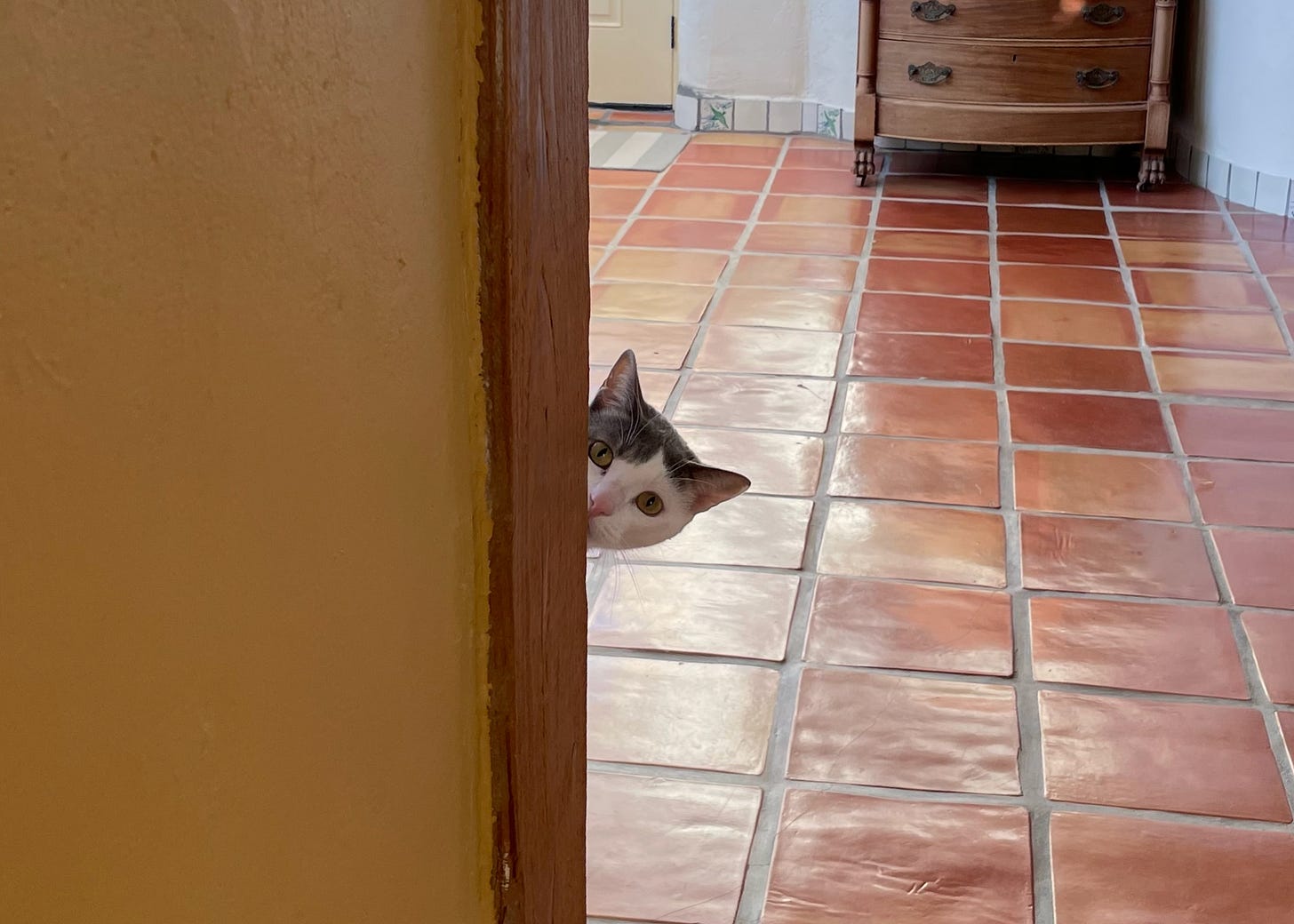From Inside the House
On getting slightly better at self worth and awareness.
Advice on how to get to a better place has often felt simplistic and unhelpful to me. How do I “make new friends” when I’m mostly convinced the few I have are barely putting up with me? How am I supposed to “join a club” when I’m having a hard time leaving the house?
When I was at a very low point in my life, I was introduced to a tool that I was immediately able to make use of for once. By slightly changing the way I spoke, I was able to make some incremental yet desperately needed and satisfying forward progress.
The Tool
The premise is simple. Don’t use harsh or disparaging language when talking about yourself. A few examples:
“This is probably a stupid thought, but…”
“I can’t believe I left my running shoes at home. I’m such an idiot.”
“Yeah that was a dumb suggestion, never mind.”
Pay special attention to when you make a sudden mistake, such as spilling a drink or breaking a dish.
“You idiot, why are you so clumsy?”
The only goal here is to stop doing this.
“Here’s my probably bad idea,” can just be “Here’s what I’m thinking.”
Instead of “Wow, that was an incredibly stupid thing for me to say,” try “Actually, let me give that another shot.”
Replace “How could I have been such an absolute idiot,” with “I can do better than that next time.”
Notice this is not letting yourself off the hook – you’re just stripping out the belittling, bullying language.
The Why
Some benefits to changing how you speak about yourself:
You’re gradually introducing little boosts of self worth through treating yourself with understanding instead of derision.
You’re building up your introspection muscle by noticing how you talk about yourself. This ability to recognize your own mental processes is a foundational skill for gaining better self awareness.
So why do many of us speak about ourselves this way?
As children, being teased or ridiculed can be extremely painful. In an attempt to avoid this pain, we learn to pre-empt the ridicule by inflicting it on ourselves first. By developing an internal voice that informs us of everything we’re potentially doing wrong, and berates us before anyone else can, we protect ourselves from the worst of the pain. So it’s a defense mechanism – but a deeply flawed one.
Inklings
Whether you recognize this behavior in yourself or not, listen for it in others. If you identify someone using self-disparaging language, there’s a distinct possibility that they may be having a hard time under the surface.
Is this someone you could make an effort to spend more time with or get closer to? Even just mentioning what you’re noticing in a kind way can be helpful.
“Hey, you’re not an idiot, that’s a totally normal mistake to make.”
“I notice that you call yourself stupid a lot. Just so you know, I definitely don’t consider you stupid.”
A small gesture, but helping someone struggling to feel even a little bit seen can be remarkably valuable.
What Next?
Adjusting the language you use when talking about yourself is admittedly a small change. It has real, tangible benefits, and can start cracking open some important doors, but it’s no magic bullet.
Consider this language adjustment a new item in your toolkit. It’ll make some jobs easier, and using it regularly will help you build the skills and comfort you’ll need when it comes time to pick up the big power tools and start operating some heavy machinery.
More on the bigger tools to come.
Did someone in your life immediately jump to mind when you read the examples of self-berating language? Consider sharing this with them, perhaps with a note along the lines of: “Hey, I just finished reading this and found it pretty interesting. Curious to hear what you think. How about we grab coffee soon and chat about it?”
Resources
If you’re looking for a much deeper dive into this topic, Being Well (one of my favorite podcasts) has an excellent episode focusing on building a better relationship with yourself.




The explanation that we pre-empt the ridicule by inflicting it on ourselves first is really insightful. I can identify with being ridiculed on a regular basis as a kid.
To go off on a tangent, this reminded me of how assholes (pardon my language) respond to self-deprecating humor. Instead of laughing _with_ the self-deprecating person or saying, "that's not true, you're not an idiot" (as you encourage), assholes pile on and further ridicule the person. This behavior strikes me as the stark opposite of what you're advocating for here.
Good observations Patrick. Appreciation, respect and tolerance are what get me down the road with myself and others these days. Some days go better than others.